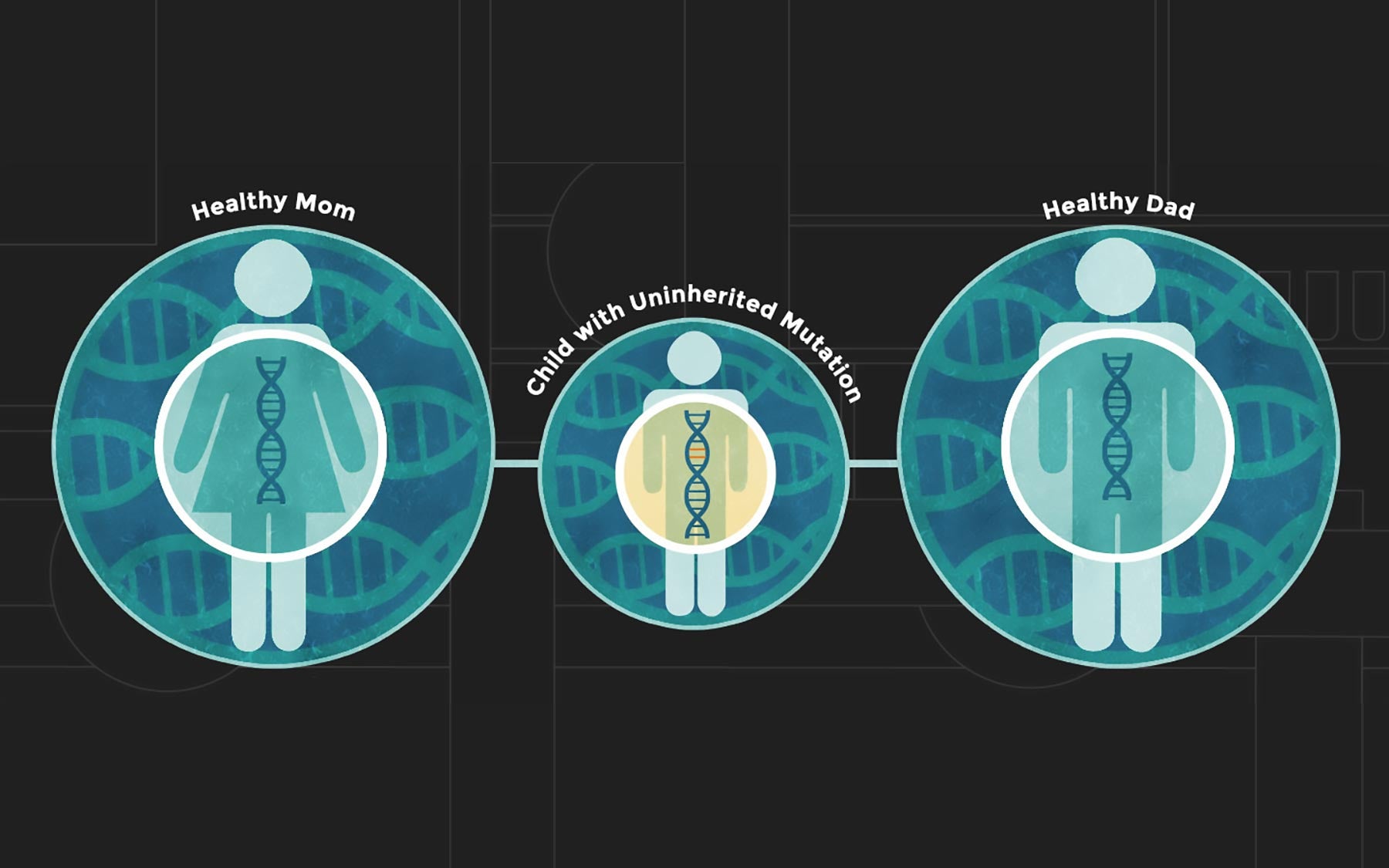Is autism passed on from mom or dad?

Is the mother or father responsible for autism
Since autism is less prevalent in females, autism was always thought to be passed down from the mother. However, research suggests that autism genes are usually inherited from the father.
Cached
Can a child get autism from the father
Due to its lower prevalence in females, autism was always thought to have a maternal inheritance component. However, research also suggests that the rarer variants associated with autism are mostly inherited from the father. Ultimately, autism is a complex condition with 100s of genes involved.
Cached
Can autism be passed on from the mother to the baby
According to CDC research, autism can continue to be inherited in a family. Some genes change during the pregnancy period and can increase the child's risk of developing autism. Experts also state that children who have siblings with autism may have a higher chance of developing it.
Cached
What are the 3 main causes of autism
There are many different factors that have been identified that may make a child more likely to have ASD, including environmental, biologic, and genetic factors.
What are the odds of having an autistic child
According to the CDC, the prevalence of autism in the United States is approximately 1 in 54 children. This means that the odds of having a child with autism are less than 2%.
Is autism more common in males or females
Boys are four times more likely to be diagnosed with autism than girls. Most children were still being diagnosed after age 4, though autism can be reliably diagnosed as early as age 2.
How does autism run in families
Research shows that autism can indeed run in families. If you already have one child with ASD, you have a 1 in 5 chance of your next child developing autism. If you have more than one child with ASD, the odds of having another child with ASD are even higher.
How does autism get passed down
Although the cause of ASD is known in some people and not known in others, genetics, biology, and environment are all important factors. Having older parents, a difficult birth, or infections during pregnancy are all examples of factors that might increase the risk for having ASD.
How do you avoid having a child with autism
Can You Prevent AutismLive healthy. Have regular check-ups, eat well-balanced meals, and exercise.Don't take drugs during pregnancy. Ask your doctor before you take any medication.Avoid alcohol.Seek treatment for existing health conditions.Get vaccinated.
Why is autism so common now
Advances in diagnostic capabilities and greater understanding and awareness of autism spectrum disorder seem to be largely driving the increase, the Rutgers researchers said. But there's probably more to the story: Genetic factors, and perhaps some environmental ones, too, might also be contributing to the trend.
What is the number one cause of autism
Autism spectrum disorder has no single known cause. Given the complexity of the disorder, and the fact that symptoms and severity vary, there are probably many causes. Both genetics and environment may play a role. Genetics.
What increases your chances of having an autistic child
Advanced parental age at time of conception. Prenatal exposure to air pollution or certain pesticides. Maternal obesity, diabetes, or immune system disorders. Extreme prematurity or very low birth weight.
Does autism run in families
If someone in your family has autism spectrum disorder (ASD), you may be more likely to have a child with ASD. ASD can look very different from person to person, so taking a careful family health history can be important for early diagnosis.
What are the triggers of autism
Among those with autism, common triggers include disturbing breaks in routine, lack of sleep, jarring “sensory stimuli” (noises, lights, or smells) or even undiagnosed mental health problems. Clearly, it's important to look beyond the behavior itself to identify the underlying cause.
What are the chances of passing autism to child
Identical twin studies put autism's heritability in a range between 36% and 95.7%, with concordance for a broader phenotype usually found at the higher end of the range. Autism concordance in siblings and fraternal twins is anywhere between 0 and 23.5%.
What is the main cause of autism
A common question after an autism diagnosis is what is the cause of autism. We know that there's no one cause of autism. Research suggests that autism develops from a combination of genetic and nongenetic, or environmental, influences. These influences appear to increase the risk that a child will develop autism.
Who is most likely to get autism
Boys are about four times more likely to develop autism spectrum disorder than girls are. Family history. Families who have one child with autism spectrum disorder have an increased risk of having another child with the disorder.
What is 90% of autism caused by
Genetics. Genetic factors may be the most significant cause of autism. Early studies of twins had estimated heritability to be over 90%, meaning that genetics explains over 90% of whether a child will develop autism.
Who is more likely to have autistic child
Children born to older parents are at a higher risk for having autism. Parents who have a child with ASD have a 2 to 18 percent chance of having a second child who is also affected. Studies have shown that among identical twins, if one child has autism, the other will be affected about 36 to 95 percent of the time.
Who is most at risk for autism
Risk factorsYour child's sex. Boys are about four times more likely to develop autism spectrum disorder than girls are.Family history. Families who have one child with autism spectrum disorder have an increased risk of having another child with the disorder.Other disorders.Extremely preterm babies.Parents' ages.
What increases risk of autism
Advanced parental age at time of conception. Prenatal exposure to air pollution or certain pesticides. Maternal obesity, diabetes, or immune system disorders. Extreme prematurity or very low birth weight.
What age is high risk for autism
Autism Parents By Age
One study found that the chance of having ASD for children born to parents who are in their thirties is up to 10 percent higher than parents who are 25 to 29 years old. The same researchers found that the chance of developing ASD is 50 percent higher when the parents are in their 40s or 50s.
How can you reduce the risk of autism
Can You Prevent AutismLive healthy. Have regular check-ups, eat well-balanced meals, and exercise.Don't take drugs during pregnancy. Ask your doctor before you take any medication.Avoid alcohol.Seek treatment for existing health conditions.Get vaccinated.
What is the root cause of autism
A common question after an autism diagnosis is what is the cause of autism. We know that there's no one cause of autism. Research suggests that autism develops from a combination of genetic and nongenetic, or environmental, influences. These influences appear to increase the risk that a child will develop autism.
What is causing high rates of autism
Advances in diagnostic capabilities and greater understanding and awareness of autism spectrum disorder seem to be largely driving the increase, the Rutgers researchers said. But there's probably more to the story: Genetic factors, and perhaps some environmental ones, too, might also be contributing to the trend.


